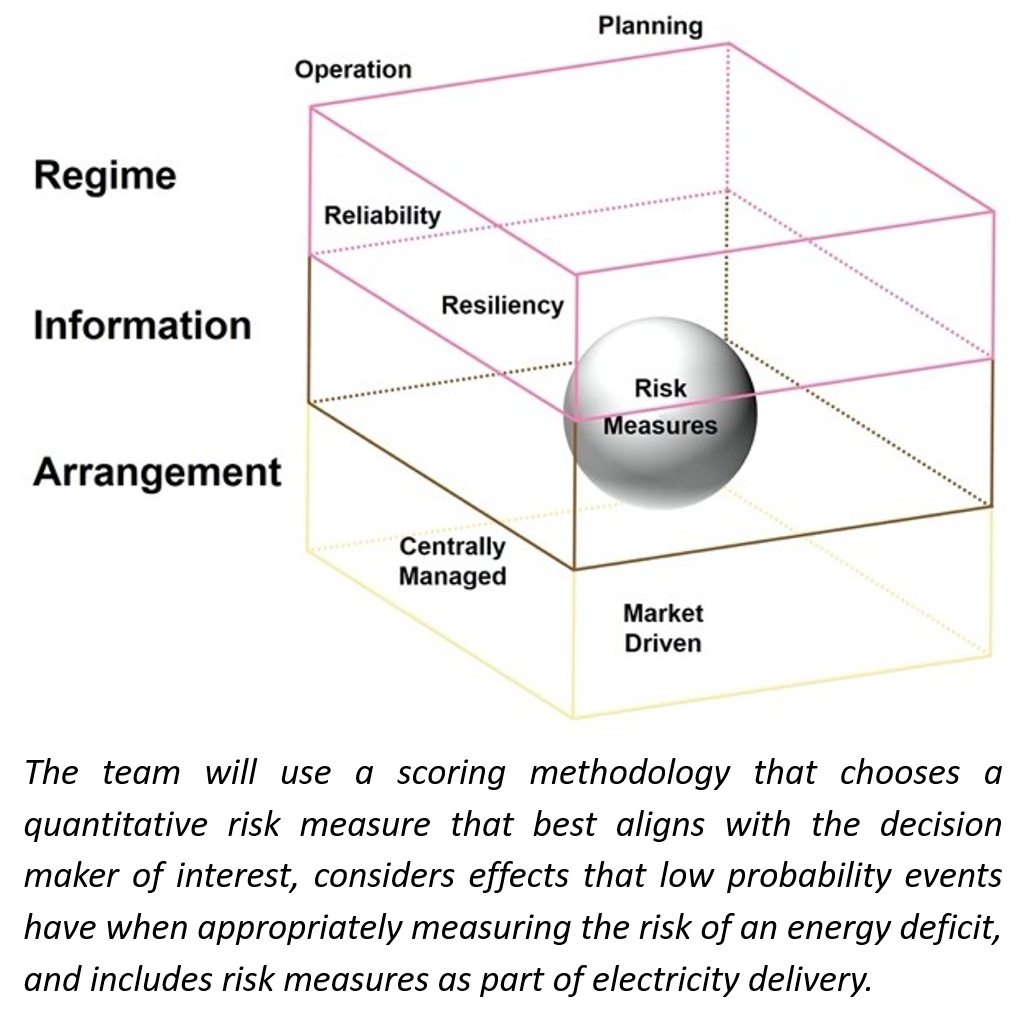Alberto J. Lamadrid L. (left), Shalinee Kishore (center), Parv Venkitasubramaniam (right)
The Advanced Research Projects Agency-Energy (ARPA-E) of the U.S. Department of Energy announced that an interdisciplinary faculty team at Lehigh University’s Institute for Cyber Physical Infrastructure & Energy (I-CPIE) will receive $2.5 million in funding. This funding will support the development of a framework and platform for asset and system risk management that can be incorporated into current electricity system operations to improve economic efficiency. The Lehigh team is one of ten teams awarded a total of $25 million in research funding under the Performance-based Energy Resource Feedback, Optimization, and Risk Management (PERFORM) program.
ARPA-E’s PERFORM program works to develop innovative management systems that represent the relative delivery risk of each asset, like wind farms or conventional generation power plants, and balance the collective risk of all assets across the grid. The Lehigh team will develop the framework, called BARS (Banking scoring- And rating- based Risk electric energy management System), by leveraging novel scoring and ratings from banking and financial institutions alongside current optimization methods in dispatching power systems to help system operators and electricity markets manage resources.
Principal Investigator Alberto J. Lamadrid L., Associate Professor of Economics and I-CPIE member, will collaborate with faculty from the Electrical and Computer Engineering Department, including Shalinee Kishore, Iacocca Chair Professor and Associate Director of I-CPIE, and Parv Venkitasubramaniam, Associate Professor and I-CPIE member. Drs. Kishore, Lamadrid and Venkitasubramaniam are involved in Lehigh's Integrated Networks for Electricity research cluster, which focuses on providing electricity more efficiently, cleanly, and securely.
The team also includes faculty and researchers from the Massachusetts Institute of Technology’s Laboratory for Information and Decision Systems (LIDS), Argonne National Laboratory, and Lawrence Livermore National Laboratory. Industry advisors will provide the team with guidance and technical expertise and include representatives from PJM Interconnection, the California Independent System Operator (CAISO), Tennessee Valley Authority (TVA), Commonwealth Edison (ComEd), Consolidated Edison (ConEdison) and OSIsoft LLC.
Lamadrid says the project will allow the team to apply some fundamental risk tools from economics to balance uncertain supply and demand in the electricity sector—improving adoption of renewable energy sources and other variable resources. “This critical infrastructure sector virtually affects everybody in the US,” he says, “and is a cornerstone of the efforts to make a transition to a low carbon economy.”
The idea for BARS was envisioned from an opportunity the team identified to counteract two failures in electricity system operations: imperfect information and missing markets for risk management products. By allowing grid operators to better assess and act upon risk profiles for grid assets, BARS will address a widely acknowledged, but still unmet, need in the energy sector. Ultimately, the project is expected to improve energy efficiency and give the U.S. a technological lead in advanced energy technologies.
